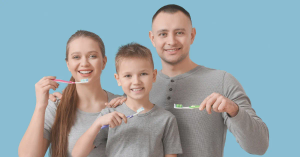What Are Lysosomal Storage Disorders?
Lysosomal Storage Disorders (LSDs) are a group of rare genetic diseases caused by defects in lysosomal function. Lysosomes, known as the “recycling centers” of cells, break down waste materials and cellular debris. In LSDs, enzyme deficiencies prevent proper breakdown, leading to the accumulation of toxic substances in cells. This can affect multiple organ systems, making early diagnosis and intervention critical, especially in children.
What Causes Lysosomal Storage Disorders?
LSDs are caused by mutations in genes responsible for producing lysosomal enzymes. These mutations result in:
• Enzyme Deficiency: The absence or reduced activity of specific enzymes.
• Substrate Accumulation: Build-up of substances like lipids, sugars, or proteins within cells.
• Genetic Inheritance: Most LSDs are inherited in an autosomal recessive manner, though some are X-linked (e.g., Fabry disease).
Types of Lysosomal Storage Disorders
There are over 50 identified LSDs, categorized based on the type of accumulated substrate. Common examples include:
1. Lipid Storage Disorders
• Gaucher Disease: Affects bones, liver, and spleen due to glucocerebroside accumulation.
• Niemann-Pick Disease: Involves the nervous system and major organs.
2. Glycogen Storage Disorders
• Pompe Disease: Causes muscle weakness and respiratory issues.
3. Mucopolysaccharidoses (MPS)
• Hurler Syndrome (MPS I): Affects growth, skeletal development, and mental abilities.
• Hunter Syndrome (MPS II): Causes developmental delays and respiratory problems.
4. Sphingolipidoses
• Tay-Sachs Disease: Leads to progressive neurological decline.
• Fabry Disease: Causes pain, skin lesions, and kidney damage.
Symptoms of Lysosomal Storage Disorders in Children
The symptoms of LSDs vary widely depending on the specific disorder but may include:
1. Neurological Symptoms
• Developmental delays or regression.
• Seizures and muscle weakness.
• Vision or hearing loss.
2. Skeletal Abnormalities
• Coarse facial features.
• Joint stiffness or deformities.
3. Organ Involvement
• Enlarged liver (hepatomegaly) and spleen (splenomegaly).
• Heart or respiratory complications.
4. Growth and Developmental Delays
• Failure to thrive.
• Delayed milestones like walking or talking.
How Are Lysosomal Storage Disorders Diagnosed?
1. Clinical Examination
• Assessing physical symptoms such as organ enlargement or developmental delays.
2. Laboratory Tests
• Enzyme Activity Assays: Measure the activity of specific lysosomal enzymes.
• Urine Tests: Detect accumulated substrates.
3. Genetic Testing
• Identifies mutations responsible for the disorder.
4. Imaging and Biopsy
• MRI scans to assess organ or brain involvement.
• Tissue biopsies to confirm substrate accumulation.
Treatment Options for Lysosomal Storage Disorders
While there is no universal cure, treatments aim to manage symptoms and improve quality of life:
1. Enzyme Replacement Therapy (ERT)
• Infusions of the deficient enzyme help reduce substrate accumulation.
• Used for Gaucher disease, Pompe disease, and Fabry disease.
2. Substrate Reduction Therapy (SRT)
• Reduces the production of substances that accumulate in cells.
• Used for Niemann-Pick and Gaucher disease.
3. Hematopoietic Stem Cell Transplant (HSCT)
• Replaces defective cells with healthy ones from a donor.
• Effective for MPS disorders, especially when done early.
4. Symptom-Specific Management
• Physical therapy for mobility issues.
• Anti-seizure medications for neurological symptoms.
• Nutritional support to address failure to thrive.
5. Gene Therapy (Emerging Treatment)
• Aims to correct the genetic mutation responsible for the disorder.
Coping with Lysosomal Storage Disorders: A Family Perspective
Caring for a child with LSD can be emotionally and physically challenging:
• Early Support: Seek genetic counseling to understand inheritance patterns.
• Specialized Care: Work with a multidisciplinary team, including geneticists, neurologists, and physical therapists.
• Community Support: Connect with patient organizations like the National Organization for Rare Disorders (NORD).
Personal Perspective: Insights as a Healthcare Professional
As a dentist, I’ve observed how systemic conditions like LSDs can manifest in oral health. For instance, children with Hurler syndrome often have impacted or delayed teeth eruption, highlighting the need for holistic healthcare. Raising awareness about rare disorders can lead to earlier diagnosis and better outcomes, especially when parents and healthcare providers collaborate.
Hope for the Future: Advances in Research
Ongoing advancements in genetics and biotechnology offer hope for children with LSDs. Clinical trials for gene therapy and novel enzyme delivery systems promise more effective and long-lasting treatments. Early intervention remains crucial to improving outcomes and giving children the best chance at a healthy life.
Conclusion: Awareness and Advocacy
Understanding lysosomal storage disorders is vital for early diagnosis and intervention. Parents and healthcare providers must stay vigilant about symptoms and seek specialized care. With continued research and innovation, the outlook for children with LSDs is brighter than ever.
References
• Fuller M, et al. “Lysosomal Storage Diseases: Molecular Pathophysiology and Therapeutic Strategies.” PubMed Central.
• Platt FM, et al. “Current Progress in the Treatment of Lysosomal Storage Disorders.” PubMed Central.
• Brady RO, et al. “Enzyme Replacement Therapy for Lysosomal Storage Disorders.” PubMed Central.








